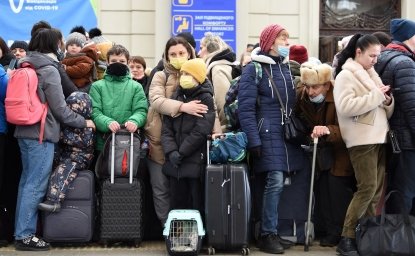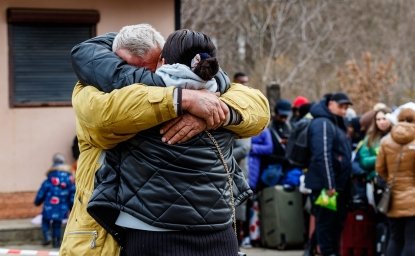On October 8, Nargess Mohammadi, the Iranian physicist, women’s rights and human rights activist, and an advocate for the abolition of capital punishment, was released from jail having served eight-and-a-half years of her ten-year sentence.
A week earlier the French Iranian anthropologist, Fariba Adelkhah, also serving a five-year sentence, was permitted to return home to her family in Tehran on furlough but had to wear an ankle bracelet so prison authorities could monitor her movements. She was not allowed to return to Paris where she lives and works.
Earlier in March of this year, Nazanin Zagary-Ratcliff, a British/Iranian employee of Thomson Reuters Foundation in England who was serving a five-year prison term, was furloughed and was able to rejoin her parents. However, she was recently notified that she is to face new charges. She, too, was prevented from joining her husband and her six-year-old daughter in London.
Do these releases, some only on furlough, presage a new approach to political prisoners in the Islamic Republic? Not at all.
A substantial number of women activists continue to serve long, unjust, and inhumane sentences and to linger in Evin prison.
A substantial number of women activists continue to serve long, unjust, and inhumane sentences and to linger in Evin prison. Earlier this year, the prison authorities furloughed 85,000 inmates because of the rapid spread of the novel coronavirus in prison. But no political prisoners were released. Nasrin Sotoudeh, for example, was on a long hunger strike; but despite her weakened physical condition and the rapid spread of the COVID-19 in Evin prison, neither she nor the other women activists were allowed to go home. On the contrary, as further punishment, some political prisoners were cruelly moved from Evin to other prisons, less equipped to deal with the virus.
To cite but one example, a year ago Nargess Mohammadi was transferred from the notorious Evin prison in Tehran to the Zanjan prison in northwest Iran, 100 miles from the capital. Conditions in provincial prisons are normally terrible, let alone at a time when the wards are infected with COVID-19. The official justification for her release in October is a new law that allows “a prison sentence to be commuted if the related court agrees.” But people familiar with her case believe that she was quite unwell, having suffered from the virus and other illnesses, and that the head of the Zanjan prison, not wanting to be responsible in case something happened to her, argued for her release.
Nargess Mohammadi, like her friend Nasrin Sotoudeh, has been at the forefront of the human rights and women’s rights struggle in the Islamic Republic. Nargess was a member of the Defenders of the Human Rights Center founded by Shirin Ebadi, the Iranian human rights lawyer and Nobel Peace Prize laureate. Both Nasrin and Nargess have had their passports confiscated and are barred from leaving the country. These two women are recipients of international human rights awards for their work in Iran. In 2018 Nargess Mohammadi was among the recipients of the Sakharov Prize and Nasrin Sotoudeh was one of the recipients of the 2020 Alternative Nobel Prize. Nargess hasn't seen her husband and her two children or their home in Paris. While Nasrin’s husbands and her two children reside in Tehran, both these women have been in and out of jail for over a decade—always on trumped up charges of endangering state security and the like.
Yet, despite their terrible prison conditions, these brave women managed to continue to communicate from prison with the outside world...
Yet, despite their terrible prison conditions, these brave women managed to continue to communicate from prison with the outside world, writing letters that describe the inhumane, debasing conditions, even torture they and other women activists have suffered and the false accusation these women have confronted in sham trials. In their letters, they have also spoken out in support of the demonstrations that have taken place in Iran in recent years and condemned the harsh treatment by security authorities of the demonstrators. Each of these prisoners, including the dual nationals, have their own heart-breaking, courageous stories to tell.
The release of some of the dual nationals, both men and women, has been arbitrary. While Fariba Adelkhah and Nazanin Zaghari have been furloughed, there are others like the British-Australian academic, Kylie-Moore Gilbert, who remain in confinement. She is serving a ten-year sentence. Not only was she not allowed to go home to Australia, she was moved from Evin to Qarchak prison which is widely infected with the virus.
Another dual national, Siamak Namazi, was arrested in October 2015. This young Iranian American entrepreneur, World Economic Forum Young Global Leader, and a former Wilson Center visiting Public Policy Fellow, was sentenced to ten years after the usual sham trial behind closed doors. Under Iranian law, a prisoner becomes eligible for a furlough after serving five years of his or her sentence. Yet despite the pandemic that has infected large part of the Iranian population and prisons in Iran, Siamak's request for a furlough was not granted.
Siamak was among those who believed a rapprochement between the US, the West and Iran would benefit all sides.
Siamak was among those who believed a rapprochement between the US, the West and Iran would benefit all sides. When he was arrested, the Europeans had already developed economic ties with Iran and the negotiations over Iran's nuclear program, that resulted in the agreement known as JCPOA, had concluded. The announcement of the deal was accompanied by a swap of dual nationals held in Iran with Iranians in US prisons. Siamak, was not among them. A couple of months later, his 80-year-old father, Baquer, a retired international civil servant, was lured from abroad to Iran on the promise he could visit his son, and was arrested upon his arrival and imprisoned.
There was nothing in Siamak’s past nor work that would justify his cruel sentence. He was not a spy and was not endangering the security of the country. He was not a political activist. Both father and son were apolitical. In all the years Siamak spent in the U.S. and during his visits to Iran, he argued only for better relations between the two countries.
The temporary furloughs Iran granted the women activists cited earlier in this article represent a first step, taken late--but still only a first step. The time has come for Iran to open its prison doors and release all political prisoners--women activists, human rights activists, dual nationals, members of religious and ethnic minorities, and participants in protest demonstrations.
The views expressed in this article are those of the author and do not reflect an official position of the Wilson Center.
Author


Middle East Program
The Wilson Center’s Middle East Program serves as a crucial resource for the policymaking community and beyond, providing analyses and research that helps inform US foreign policymaking, stimulates public debate, and expands knowledge about issues in the wider Middle East and North Africa (MENA) region. Read more





